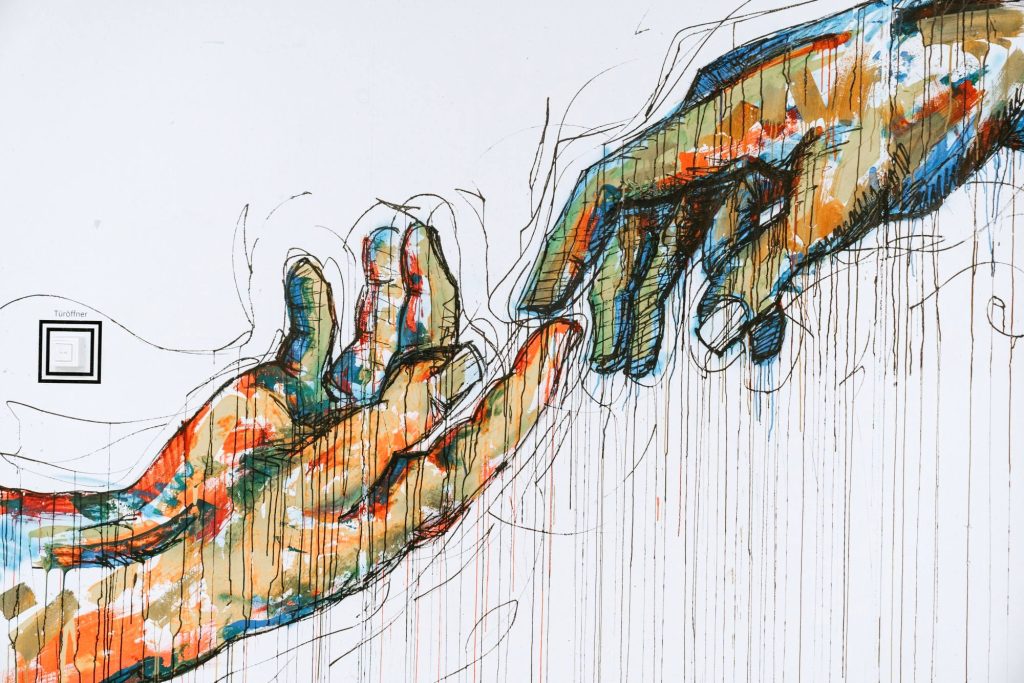Need for Closeness: Parashat T’tzaveh
Parashat T’tzaveh
Exodus 27:20-30:10
Why did God take us out of Egypt? The Torah offers a number of explanations in various places. Our Torah portion mentions one of them. After detailing the elements that go into making the Sanctuary, and after describing the vestments of the priests who would minister there, God says: “And I shall dwell (v’shakhanti) amongst the Children of Israel and I will become for them an Almighty God. And thy will know that I am the Eternal One, their Almighty God, [and that] I took them out of the land of Egypt in order to set My dwelling among them; I am the Eternal, their Almighty God.” (Ex. 29:45-46)
In last week’s Torah portion we heard the famous saying, “Let them build a sanctuary for Me and I will dwell among them.” (Ex. 25:8) Here we have a repetition of that idea, but with the added explanation that it is not only our own efforts to create a sacred home for God that draws God into our midst. In addition we learn that this was God’s purpose from the very first. God liberated us from slavery “in order to set My dwelling among them.” Rashi on our verse puts this notion in strong terms: “On condition that I will dwell among them.” Many commentators are taken aback by this wording. Could we imagine that our extrication from the suffering of slavery was not a supreme good in and of itself, but was conditioned on our acceptance of God’s Presence? What if we declined to accept God? Would our slavery then be acceptable? That idea is impossible to accept.
Nahmanides suggests a mystical answer. It is not only that we are called upon to accept God into our midst for our own benefit. God’s dwelling among us is a “Heavenly need – tzorekh gavo`ah”. Rational approaches to religion in general and to Judaism in particular make a basic assumption that God does not really need our prayers (and certainly not our animal sacrifices!). If religion has any value in that view, it is in the way it helps us build community and open ourselves to higher aspirations and to the presence of others. But Nahmanides’ radical concept tells us something very different: God needs us. And, in some ways, God’s need for us is more acute and more constant than our need for God. Indeed, we may or may not accept God as our Companion, and we may not even feel the need to do so. But, says our mystical tradition, God constantly feels the need for our closeness. God is, thus, a Being with “special needs.” The Torah tries to sensitize us so that we may make the necessary accommodations for God’s dwelling among us. We are meant to learn how to make our lives and spaces “God accessible.”
Shabbat Shalom
Rabbi David Greenstein
Subscribe to Rabbi Greenstein’s weekly d’var Torah
Photo by Claudio Schwarz on Unsplash
Thank you to John Lasiter for suggesting the title and selecting an image for this Torah Sparks – Rabbi Greenstein


Defining God as someone with “special needs” implies inherent limitations on the Divine. Wouldn’t it be more appropriate to say that loneliness and uniqueness are not qualities that are to be avoided by human beings, since God has Modeled for us how closeness and togetherness are universal values?
Defining God as someone with “special needs” implies inherent limitations on the Divine. Wouldn’t it be more appropriate to say that loneliness and uniqueness are not qualities that are to be avoided by human beings, since God has Modeled for us how closeness and togetherness are universal values?
Eliminate “not”
Eliminate “not”
Your comments bring to mind what is said of chelb’na – galbanum – in making annointing oil. See below:
Botanically known as Ferula gummosa, galbanum is mentioned in Exodus 30:34: “And the Lord said unto Moses, ‘Take unto thee sweet spices, stacte, and onycha, and galbanum; these sweet spices with pure frankincense of each shall there be a like weight.’” Botanists have written that galbanum’s odor is strongly balsamic, pungent, and disagreeable when burned. There is an interesting suggestion in the Jewish Talmud as to why this powerful, less-than-fragrant resin was used in the holy incense: Every communal fast that does not include sinners of Israel is not a fast.
This has been linked to the fact that incense included spices or perfumes with lovely fragrances, but was not complete without one spice: galbanum. With its earthy odor, galbanum is used for its cleansing and body-supporting properties. As we read the account of the anointing oil, we see that galbanum was included in the formula. This suggests that the compounding of these oils is what is really specific and where the strength really lies.
Your comments bring to mind what is said of chelb’na – galbanum – in making annointing oil. See below:
Botanically known as Ferula gummosa, galbanum is mentioned in Exodus 30:34: “And the Lord said unto Moses, ‘Take unto thee sweet spices, stacte, and onycha, and galbanum; these sweet spices with pure frankincense of each shall there be a like weight.’” Botanists have written that galbanum’s odor is strongly balsamic, pungent, and disagreeable when burned. There is an interesting suggestion in the Jewish Talmud as to why this powerful, less-than-fragrant resin was used in the holy incense: Every communal fast that does not include sinners of Israel is not a fast.
This has been linked to the fact that incense included spices or perfumes with lovely fragrances, but was not complete without one spice: galbanum. With its earthy odor, galbanum is used for its cleansing and body-supporting properties. As we read the account of the anointing oil, we see that galbanum was included in the formula. This suggests that the compounding of these oils is what is really specific and where the strength really lies.